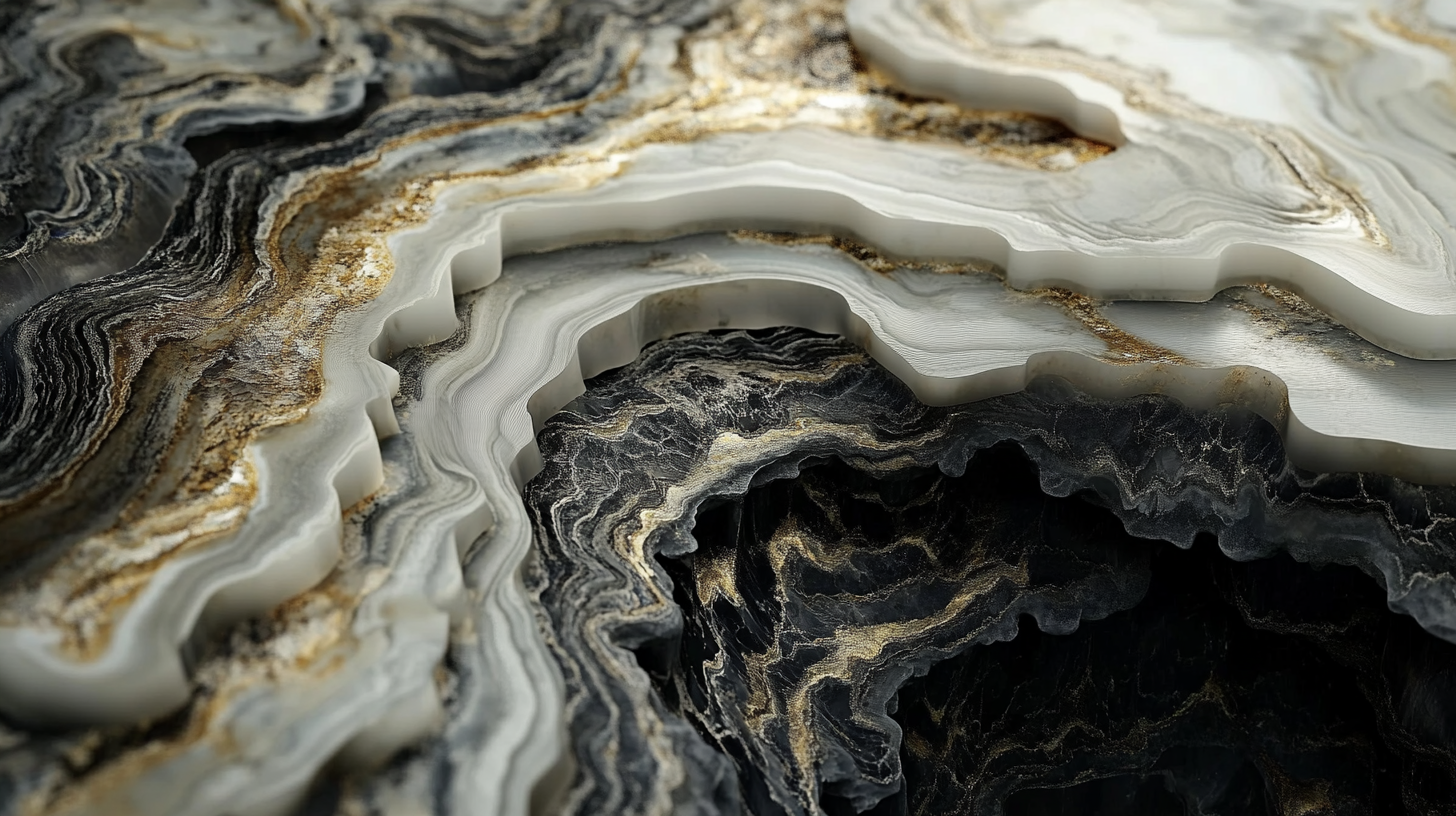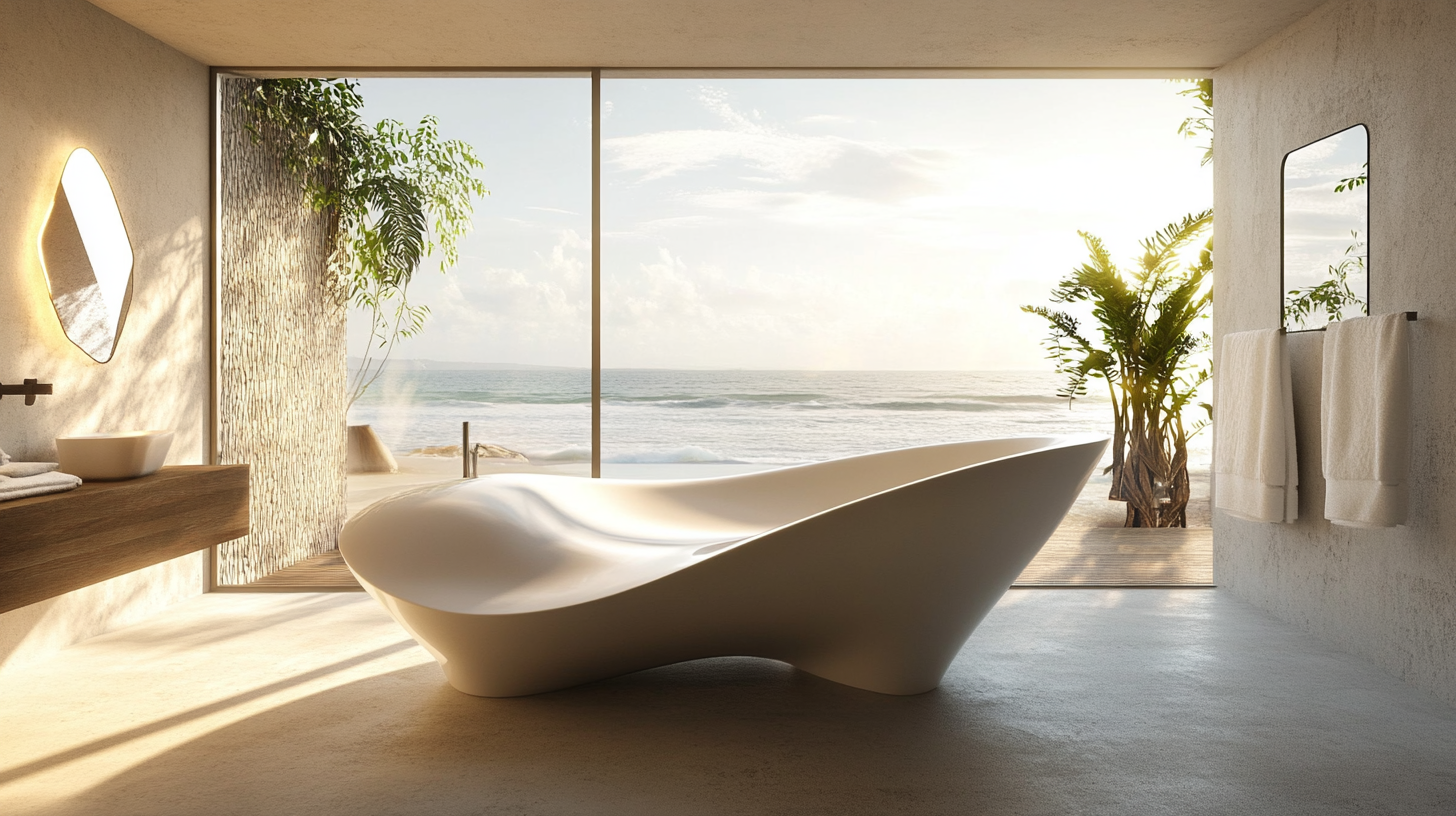Blog
Unleashing the Potential of Solid Surface for Global Market Trends
In recent years, the demand for innovative materials has surged, driving industries to explore sustainable and aesthetically appealing options. Among these, Solid Surface has emerged as a versatile player, captivating architects, designers, and manufacturers alike. As the global market trends evolve, Solid Surface offers a unique blend of functionality and style, making it a go-to material for various applications, from residential spaces to commercial environments. Its non-porous nature ensures durability and ease of maintenance, while a wide array of colors and textures allows for customization that meets diverse consumer preferences. This blog will delve into the potential of Solid Surface, examining how it can meet the changing demands of the global market and enhance spaces with its myriad benefits. Join us as we explore the transformative possibilities of Solid Surface in today's dynamic design landscape.

Exploring the Versatility of Solid Surface Materials in Modern Design
Solid surface materials have emerged as a game changer in modern design, showcasing a remarkable versatility that appeals to a wide array of applications. From sleek countertops in residential kitchens to stunning wall cladding in commercial spaces, solid surfaces combine aesthetic appeal with functional durability. Available in a myriad of colors, patterns, and finishes, designers can realize their visions without being limited by traditional materials. This adaptability makes solid surface an ideal choice for architects and interior designers aiming to create unique and cohesive environments.
The material's non-porous nature enhances its appeal by ensuring hygiene and easy maintenance, particularly valuable in healthcare and food service settings. Additionally, its capacity for seamless installation allows for expansive, uninterrupted surfaces that elevate any space’s visual impact. As sustainability becomes increasingly essential in design practices, manufacturers are also producing solid surface materials from recycled content, aligning with eco-friendly initiatives. This evolution not only supports modern design requirements but also responds to consumer demands for sustainable choices. The broad potential of solid surface materials positions them as a vital resource in the ever-evolving landscape of design innovation.
Global Market Trends in Solid Surface Materials
This pie chart illustrates the market share of different applications of solid surface materials, highlighting their versatility in modern design. As seen, the kitchen and bathroom segments dominate, followed by commercial spaces and furniture design.
Current Market Growth Trends for Solid Surface Applications Worldwide
The solid surface market is experiencing significant growth trends worldwide, driven by an array of applications and increasing demand across various sectors. Recent industry reports indicate that the global market for solid surfaces is anticipated to expand alongside rising awareness about hygiene and cleanliness, particularly in the wake of heightened health regulations. For example, the countertops segment, which includes solid surfaces, has shown resilience and adaptability amid the challenges posed by the COVID-19 pandemic, offering opportunities for growth as consumers prioritize both aesthetic and functional qualities in their kitchen and bathroom renovations.
Moreover, the broader sensor market is projected to witness innovations that may impact solid surface applications, with a forecasted growth rate of over 10% from 2025 to 2035. This technological advancement is likely to enhance the performance and integration of solid surfaces in smart home solutions, making them an increasingly attractive option for consumers looking for modern, high-tech home environments. As the market evolves, it is crucial for manufacturers to stay at the forefront of these trends, ensuring they leverage new technologies and materials to meet customer expectations and capitalize on emerging opportunities in the global marketplace.

Sustainability and Eco-friendliness in Solid Surface Manufacturing
The solid surface industry is increasingly aligning with sustainability and eco-friendliness, paving the way for innovative manufacturing processes. DuPont's Corian Solid Surface, for instance, is setting a benchmark in creating sustainable spaces for both living and working environments. By adhering to circular economy principles, the Corian Design business is integrating a growing percentage of recycled materials into their products, contributing to a reduced environmental footprint.
In tandem with solid surfaces, the home and personal care sector is undergoing a significant transformation. There is a marked shift towards sustainable alternatives, with a recent report indicating that the demand for eco-friendly surfactants has surged as consumers become more aware of environmental issues. The industry is exploring green ingredients like biosurfactants, which serve as effective substitutes for synthetic chemicals. This trend not only addresses the need for sustainable practices but also aligns with heightened environmental regulations.
Furthermore, advancements in materials science, such as the eco-friendly fabrication of copper oxide nanoparticles for wastewater treatment and recent breakthroughs in biodegradable polymers, are revolutionizing sustainability across multiple sectors. These innovations are essential not just for compliance, but as a proactive approach to environmental stewardship, reflecting the underlying shift towards a sustainable future in manufacturing and product development.

Innovative Technologies Driving the Solid Surface Industry Forward
The solid surface industry is experiencing a transformational wave driven by innovative technologies that are reshaping product design, functionality, and sustainability. Advanced manufacturing techniques such as 3D printing and CNC machining have enabled designers to create complex shapes and textures that were previously unattainable. This shift not only enhances aesthetic appeal but also opens up new applications for solid surfaces in sectors ranging from hospitality to healthcare. As consumers seek more personalized and versatile options, manufacturers are leveraging technology to deliver customizable solutions that meet diverse market demands.
Moreover, sustainability is becoming a significant focal point in the solid surface industry. Innovations in eco-friendly materials and production processes are addressing environmental concerns while maintaining the high performance standards that solid surfaces are known for. Companies are exploring the use of recycled materials, reducing waste, and implementing energy-efficient methods, which resonate well with the growing trend toward responsible consumption. These technological advancements not only elevate the quality and durability of solid surfaces but also position the industry favorably within the global market, appealing to environmentally conscious consumers and businesses alike.
Strategic Opportunities for Businesses in the Solid Surface Market Expansion
The solid surface market is experiencing significant growth, driven by emerging trends and strategic opportunities for businesses aiming to expand their reach. With the global market anticipated to reach USD 103.10 billion by 2033, the potential for innovation within this sector is immense. Companies can leverage advancements in material technology to create adaptable solutions that meet diverse consumer needs, ranging from interior design to sustainable construction practices.
U.S. organizations are increasingly recognizing the importance of harnessing the unique talents of their Asian employees. By promoting a culture of inclusivity and professional development, businesses can unlock hidden potential within their workforce. Offering mentorship programs and leadership training not only helps these employees advance in their careers but also fosters a more dynamic and innovative corporate environment, ultimately contributing to market expansion in various industries.
As firms like VirExit Technologies demonstrate through their active pursuit of strategic agreements and growth initiatives, the intersection of technological advancement and diverse talent can lead to groundbreaking solutions. By embracing these strategic opportunities, organizations can effectively navigate the evolving landscape of the solid surface market and beyond, positioning themselves for long-term success.
Unleashing the Potential of Solid Surface for Global Market Trends - Strategic Opportunities for Businesses in the Solid Surface Market Expansion
| Region | Market Size (USD Million) | Growth Rate (%) | Key Players | Strategic Opportunities |
|---|---|---|---|---|
| North America | 2500 | 5.2 | Corian, Avonite | Eco-friendly materials |
| Europe | 2300 | 4.7 | LG Hausys, DuPont | Market diversification |
| Asia Pacific | 3000 | 6.5 | Mizuno, Staron | Emerging market trends |
| Latin America | 800 | 3.8 | Durasein, Formica | Rising interior design trends |
| Middle East & Africa | 900 | 4.0 | Kreonite, Hanex | Construction boom |
